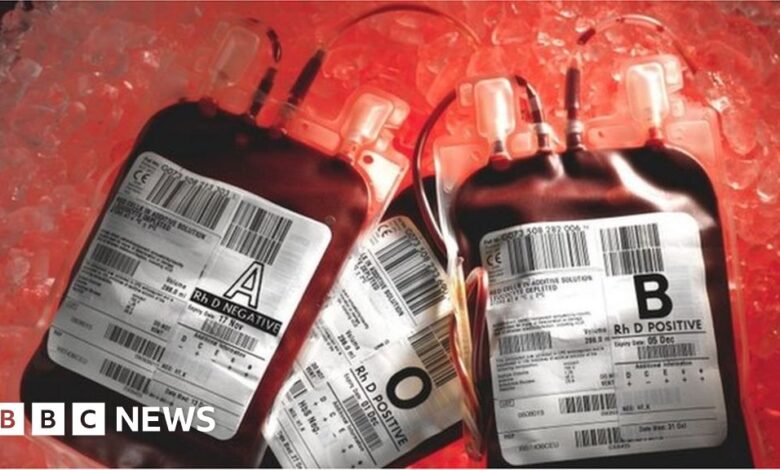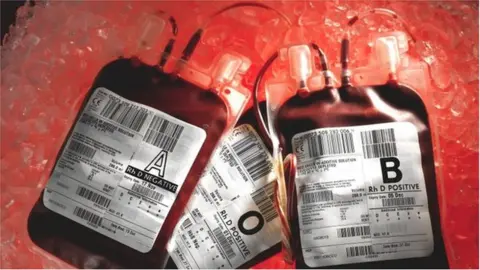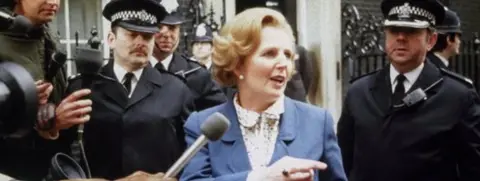NHS blood infection inquiry, and Japanese abdication

 PA
PA‘Worst treatment scandal’: NHS blood infection inquiry takes evidence
Contaminated blood transfusions in the 1970s and 1980s – which were infected with HIV or hepatitis C – are thought to have killed more than than 2,000 people in the years since. Now a public inquiry into what has been called the “worst treatment scandal in the history of the NHS” is about to start taking evidence. The sessions are scheduled to go on for the next two years, with approximately 2,500 people speaking.
BBC Two’s Victoria Derbyshire programme has spoken to many of those affected by the scandal, including Jackie Britton, who was given a blood transfusion after having a baby. The Department of Health and Social Care has said the inquiry “was set up to get to the truth and give families the answers they deserve”.
Japanese emperor: Akihito begins abdication
At the age of 85, Japan’s Emperor Akihito is ending his 30-year reign today. He becomes the first person to abdicate the role since 1817. His son, the Oxford-educated Crown Prince Naruhito, will take over. The BBC takes an in-depth look at the life of Emperor Akihito, who has been in declining health recently and has been praised for showing a human touch during economically difficult times for his country, and throughout tragedies affecting its people.


Anti-social behaviour: ‘Nightmare’ being ignored, report says
A report warns that anti-social behaviour in England and Wales – including vandalism, street drinking, prostitution-related activity and nuisance neighbours – is being ignored by the authorities. Victims’ Commissioner Baroness Newlove said police, local councils and housing providers were downplaying the problem, with those affected “living a nightmare”. But police chiefs and the Local Government Association say they take anti-social behaviour seriously. Here’s the effect violent street-drinkers have had in one area of Leeds.
London nail bombings remembered 20 years on
On 30 April 1999, a third nail bomb attack inside two weeks was carried out in London, killing three people and injuring dozens more. It was the final bombing by David Copeland, a self-confessed racist and homophobe.
Twenty years on from the explosion at the Admiral Duncan pub in Soho, those who were affected by the 22-year-old’s campaign of hatred have been speaking about their experiences.
What the papers say
 Daily Telegraph, Daily Mail
Daily Telegraph, Daily MailThe Daily Mail leads on campaigners warning that rapists will go free unless plans to ask victims in England and Wales to hand police their mobile phones are scrapped. Meanwhile, the Daily Telegraph reports on the finding that some councils are treating anti-social behaviour as “unimportant”, also asking why callers to the police non-emergency 101 phone line are charged to report incidents. Elsewhere, the Daily Express says the NHS is suffering from a “staffing crisis”, and the i paper reports a US warning that it could withhold intelligence from the UK if the government selects Chinese firm Huawei’s equipment to help build the country’s 5G mobile network.
Daily digest
Slavery Cambridge University to investigate its historical links
Rod Rosenstein US deputy attorney general quits but praises president’s “courtesy and humour”
Railway future We need independent watchdog, operators tell government
If you see one thing today

If you listen to one thing today
 Getty Images
Getty ImagesIf you read one thing today
 PA
PA

Lookahead
Today The International Academy of Astronautics begins a week-long conference in Washington DC on how to defend Earth from apocalyptic space rocks.
20:00 Tottenham host Ajax in the first leg of their Champions League semi-final.
On this day
1993 The world number one women’s tennis player, Monica Seles, is stabbed in the back during a match in Hamburg, Germany.
From elsewhere
Source link





